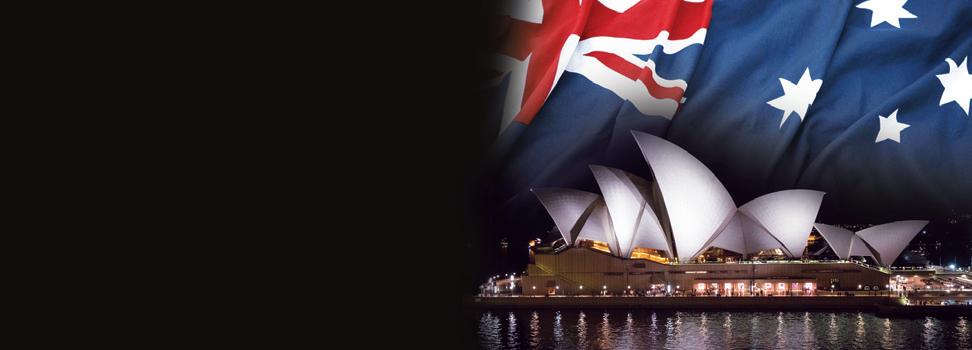
3 minute read
Australia
Reporting on the latest developments from the Australian maritime sector
Australia
Advertisement
Wärtsilä to deliver power and electrical solutions for Australian RoRo newbuild
The technology group Wärtsilä will supply main and auxiliary engines, fuel storage tanks, gas handling equipment and electrical systems for a new RoRo being built for Australian operator SeaRoad Shipping. The orders with Wärtsilä were placed in Q1 2022.
The 210 metre-long vessel is under construction at the Flensburger Schiffbau-Gesellschaft (FSG) shipyard in Germany. The vessel will operate primarily on LNG fuel. Wärtsilä’s depth of experience and in-house know-how on LNG systems was a major consideration in the award of the contract.
The vessel will be powered by two Wärtsilä 46DF dual-fuel main engines and three Wärtsilä 20DF dual-fuel auxiliary engines. The Fuel Gas Handling System and LNG tanks are designed with the Gas Valve Units (GVUs) integrated into the tank connection space. This solution is unique to Wärtsilä and reduces the amount of piping needed, facilitating easier installation.
Wärtsilä will deliver almost every electrical system on board. This includes bridge consoles with integrated navigation, redundant dual-gyro compass systems, nautical sensors, external communication systems, power take-in and take-out (PTI/PTO) shaft alternators with multi-drive technology, monitoring and control systems, switchboards, internal communication, and safety systems as well as lighting.
25 year relationship
Wärtsilä will design and integrate the entire electrical package, as well as delivering the cable network. The integration project continues a successful partnership between FSG and Wärtsilä in this area lasting more than 25 years.
“We recognise Wärtsilä’s strong capabilities in LNG-related technologies, as well as their capabilities in electrical systems, and these solutions are an excellent fit for this vessel,” said Philip Maracke, CEO, FSG. “We thank Wärtsilä for its excellent support and cooperation during the various phases of this project.”
Matthias Becker, General Manager Sales, Wärtsilä Marine Power, added: “We have enjoyed a very positive relationship with both the yard and the owners throughout this project. SeaRoad is committed to sustainable practices, and this very much aligns with our own commitment to the decarbonisation of shipping operations. The solutions selected for this vessel promote these ambitions.”
Electrical installation will commence this year, whilst the bulk of Wärtsilä’s equipment is scheduled for delivery to the yard during the first half of 2023. The vessel will have 3,987 lane metres for various freight units and is expected to be completed by the end of 2023. It will join Searoad Mersey II and replace charter vessel MV Liekut to operate on Bass Strait between Melbourne, Victoria and Devonport on the Australian island state of Tasmania.
Executive Chairman of SeaRoad, Chas Kelly, said the company is continuously evolving to be the premium freight provider across Bass Strait.
“We’re constantly looking for ways to enhance our logistics solutions for customers and with our investment in this new vessel, the team at SeaRoad is confident in the future of transport between Tasmania and the mainland,” he said.
“At over 40,000 tonnes gross, this will be the largest freight vessel in SeaRoad’s history, continuing to grow our capacity, and providing more options for local agriculture, aquaculture and manufacturing industries.
“We’ve been very pleased with how our two current FSG-built vessels have performed from both an efficiency and an operational perspective. We look forward to continuing our successful relationship with the German shipyard and their experienced staff.”
About SeaRoad
SeaRoad is a privately-owned, Australian integrated shipping and logistics business specialising in Bass Strait. The company provides a customer-focused service through purpose-built RoRo vessels servicing the route between Melbourne (Victoria) and Devonport (Tasmania).
SeaRoad’s current two ships operate a dedicated cargo shipping service six days per week. MV Searoad Mersey II, built in 2016, is the first coastal ship in Australia to use LNG fuel and power technology. The modern MV Liekut joined the SeaRoad fleet in April 2021 under a three-year charter agreement. Liekut will be replaced by SeaRoad’s newbuild vessel at the end of 2023.
In addition to its two Bass Strait shipping vessels, SeaRoad owns and operates a large road transport and container fleet as well as cargo-handling equipment, which the business utilises at its various terminals and depots. n










